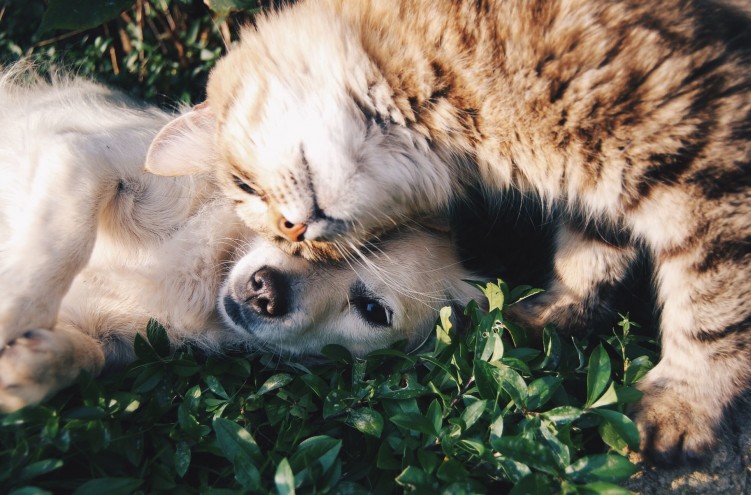Pet Poisons to Look Out For Easter Weekend
By epetsure

This week is National Animal Poison Prevention week and with the Easter holiday coming up, epetsure™ wanted to share a few tips on keeping your furry best friends safe.
The colorful grass that is a common decoration used to line Easter baskets is very poisonous to pets and can cause obstructions resulting in surgery, and/or in some cases, even death.
And it’s not just the stuff around the Easter baskets that’s dangerous to animals, but the sweets inside, as well. Most people know that chocolate is bad for animals, but all candy, sugar, and especially artificial sweeteners are very dangerous to animals. Aside from interfering with their regular diets, they can also cause hypoglycemia or low blood sugar, resulting in vital organ damage, seizures and in some cases, even death.
Another thing to watch out for are the beautiful spring flowers that bloom this time of year. While Easter lilies are beautiful, they are extremely toxic to cats and cause death within 24 hours.
According to the ASPCA Poison Control Center, the top 10 commonly ingested poisons by pets in 2015 were:
- Over the counter medications including herbal and natural supplements, which accounted for over 28,000 reported cases, involving nearly 7,000 products.
- Human prescription medications represented nearly 16% of all cases.
- Insect poisons accounted for nearly 9%, more than 15,000 reported cases.
- Human foods, particularly to dogs that ingest more food than cats, can get into serious trouble when they eat onions, garlic, grapes, raisins, alcohol and xylitol (a common sugar substitute sweetener recently found in many brands of peanut butter).
- Household items, specifically cleaning products, fire logs and paint, made up more than 14,000 cases.
- Veterinary medications and overdoses of medications prescribed represented more than 7% of the total cases reported.
- Chocolate continues to be very problematic for pets, accounting for more than 30 cases reported every day.
- Indoor and outdoor plants represented nearly 5% of calls, most involving cats and indoor plants.
- Rodent poisons are just as toxic to pets as they are to rodents. The ASPCA handled over 8,000 reported cases involving rodenticides.
- Lawn and garden products like herbicides and fungicides accounted for 3% of all calls.
It’s not easy keeping our furry best friends safe, but as pet parents it’s our responsibility to do our best. Our homes should be a safe haven for all our loved ones, but animals can get into trouble just like children.
Remembering that cats can jump to the top of the refrigerator, climb curtains and most other soft materials if they have not been declawed, should play a key role in determining how and where you store hazardous items.
Dogs, on the other hand, use their noses to find trouble even when it’s hidden out of sight. In 2011, The Pet Poison Hotline created a list of top ten dog breeds that accounted for the most calls into the hotline. They were as follows:
- Mixed breeds
- Labrador retrievers
- Golden retrievers
- Chihuahuas
- Yorkshire terriers
- Dachshunds
- Shih Tzus
- Boxers
- Beagles
- German shepherds
It’s so important, especially during a holiday weekend or when having company, to ensure that any and all possible hazards are put away, locked up, or stored out of reach. Even if your dog’s breed isn’t listed or you think your cat can’t reach those hard to reach places, don’t let that stop you from taking the proper precautions. It could literally mean the difference between the life and death of your best friend.




